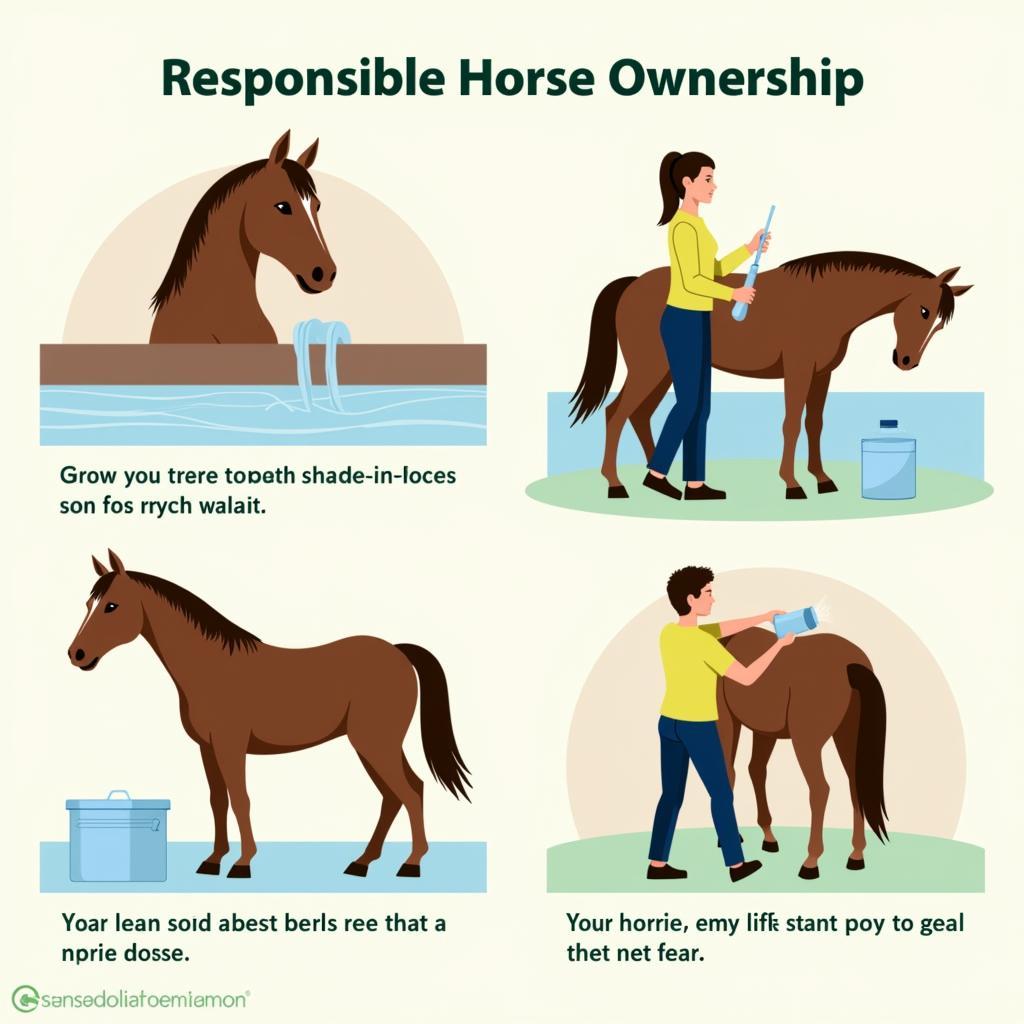The term “Feeble Little Horse Chicago” has recently gained traction online, sparking curiosity and concern among horse lovers. This article delves into the meaning behind this phrase, exploring potential interpretations and addressing the importance of proper horse care, especially for those perceived as “feeble.”
What Does “Feeble Little Horse Chicago” Actually Mean?
The phrase “feeble little horse chicago” doesn’t refer to a specific horse or a recognized breed. It appears to be a colloquialism, possibly originating from online discussions or social media, describing a horse perceived as small, weak, or perhaps neglected. The inclusion of “Chicago” likely adds a geographical context, though its significance remains unclear. It could point to a specific incident, a trend, or simply be a random addition. Regardless, the phrase highlights the vulnerability of these animals and underscores the need for responsible horse ownership.
Caring for the “Feeble” Horse
Whether a horse is genuinely feeble due to age, illness, or neglect, or simply perceived as such due to its size, providing appropriate care is crucial. This involves several key aspects:
- Nutrition: A balanced diet tailored to the horse’s specific needs is essential. This might include high-quality hay, grain, supplements, and access to fresh water.
- Veterinary Care: Regular check-ups, vaccinations, and prompt treatment for any illness or injury are vital for maintaining a horse’s health.
- Shelter and Environment: Providing adequate shelter from harsh weather conditions and a safe, clean environment is critical for the well-being of any horse, especially those more vulnerable.
- Exercise and Enrichment: Appropriate exercise and mental stimulation are important for both physical and mental health, even for horses with limitations. This could involve gentle walks, turnout with companions, or puzzle toys.
Recognizing Signs of Neglect and Taking Action
Understanding how to identify a neglected horse is crucial. Some common signs include:
- Extreme thinness or emaciation: Ribs, hip bones, and spine are clearly visible.
- Dull, matted coat: A healthy horse’s coat should be shiny and smooth.
- Hooves in poor condition: Overgrown, cracked, or misshapen hooves can indicate neglect.
- Lethargy and lack of energy: A healthy horse should be alert and responsive.
- Untreated wounds or injuries: Open sores, infections, or lameness are serious concerns.
If you suspect a horse is being neglected, it’s important to take action. Contact your local animal welfare organization or humane society to report your concerns.
The Importance of Responsible Horse Ownership
Owning a horse is a significant commitment. It requires dedication, financial resources, and a deep understanding of equine care. Responsible horse owners prioritize their animals’ well-being, providing for their physical and emotional needs. This includes:
- Educating yourself: Continuously learning about horse care, training, and management is essential.
- Seeking professional advice: Consulting with veterinarians, farriers, and equine nutritionists can help ensure your horse receives the best possible care.
- Creating a safe environment: Minimizing risks and hazards in the horse’s surroundings is crucial.
- Providing companionship: Horses are social animals and benefit from interaction with other horses.
“Proper care is paramount for all horses,” states Dr. Emily Carter, a renowned equine veterinarian based in Lexington, Kentucky. “But those perceived as ‘feeble’ require even more attention and a deeper understanding of their specific needs.”
 Elements of Responsible Horse Ownership
Elements of Responsible Horse Ownership
Conclusion
While the exact meaning of “feeble little horse chicago” remains somewhat ambiguous, it serves as a reminder of the importance of responsible horse care. Regardless of size, breed, or perceived weakness, every horse deserves proper nutrition, veterinary care, a safe environment, and the attention of a caring owner. By understanding the needs of these animals and taking action against neglect, we can ensure their well-being and protect them from harm. The term also reinforces the need for ongoing education and awareness about responsible horse ownership within the equestrian community and beyond.
FAQ
- What should I do if I see a horse I suspect is being neglected?
- What are the basic nutritional needs of a horse?
- How can I create a safe and enriching environment for my horse?
- What are the signs of a healthy horse?
- How often should a horse receive veterinary care?
- What are the legal requirements for horse ownership in my area?
- Where can I find reliable resources on horse care and management?
For any assistance regarding horse care, please contact us at Phone Number: 0772127271, Email: [email protected] or visit our address: QGM2+WX2, Vị Trung, Vị Thuỷ, Hậu Giang, Việt Nam. We have a 24/7 customer service team.